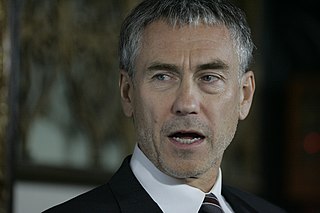Top 40 Quotes & Sayings by Tony Gilroy
Explore popular quotes and sayings by an American writer Tony Gilroy.
Last updated on April 14, 2025.
The writing is really hard. You're alone. It really pulls it out of you. You pull it out of your head. But when you're a director, you're shopping - you're picking this actor, you're picking this scene. It's like the most intense kinetic high-speed shopping of all time. You sit in a chair and it will all come rushing at you like a wind tunnel.
What you need to know to direct a movie is [of] such great variety. I've worked with people who were maestros, who know everything. I've worked with people who were empty and lost, who had no clue what they were doing. You wouldn't hire them to paint your apartment. And then there's everything in-between. There's no list of skills you have to have to sit in that chair.






















